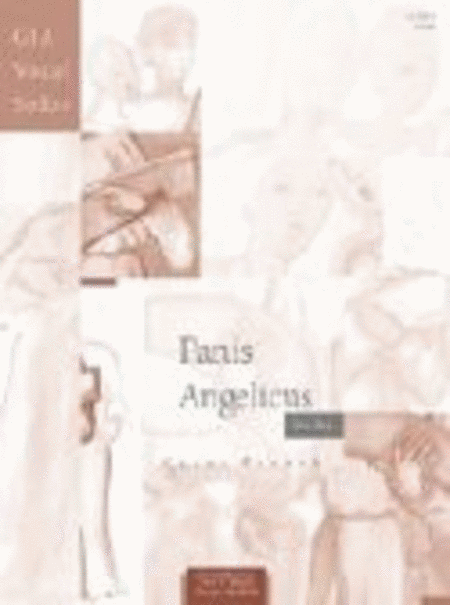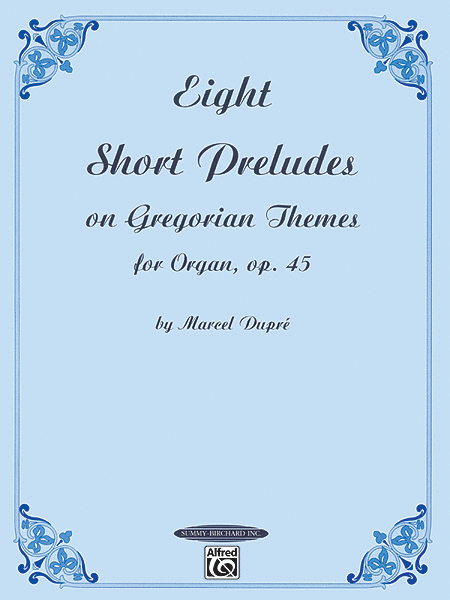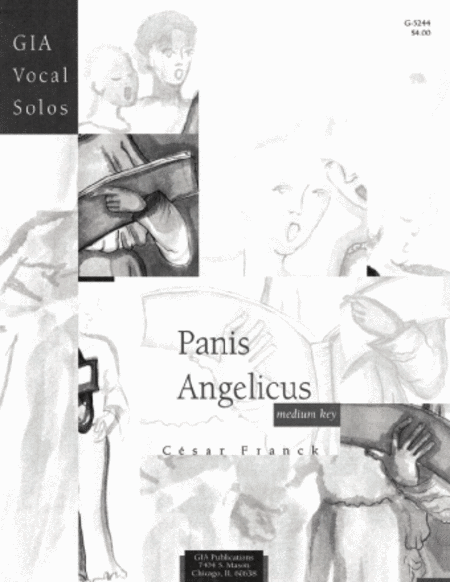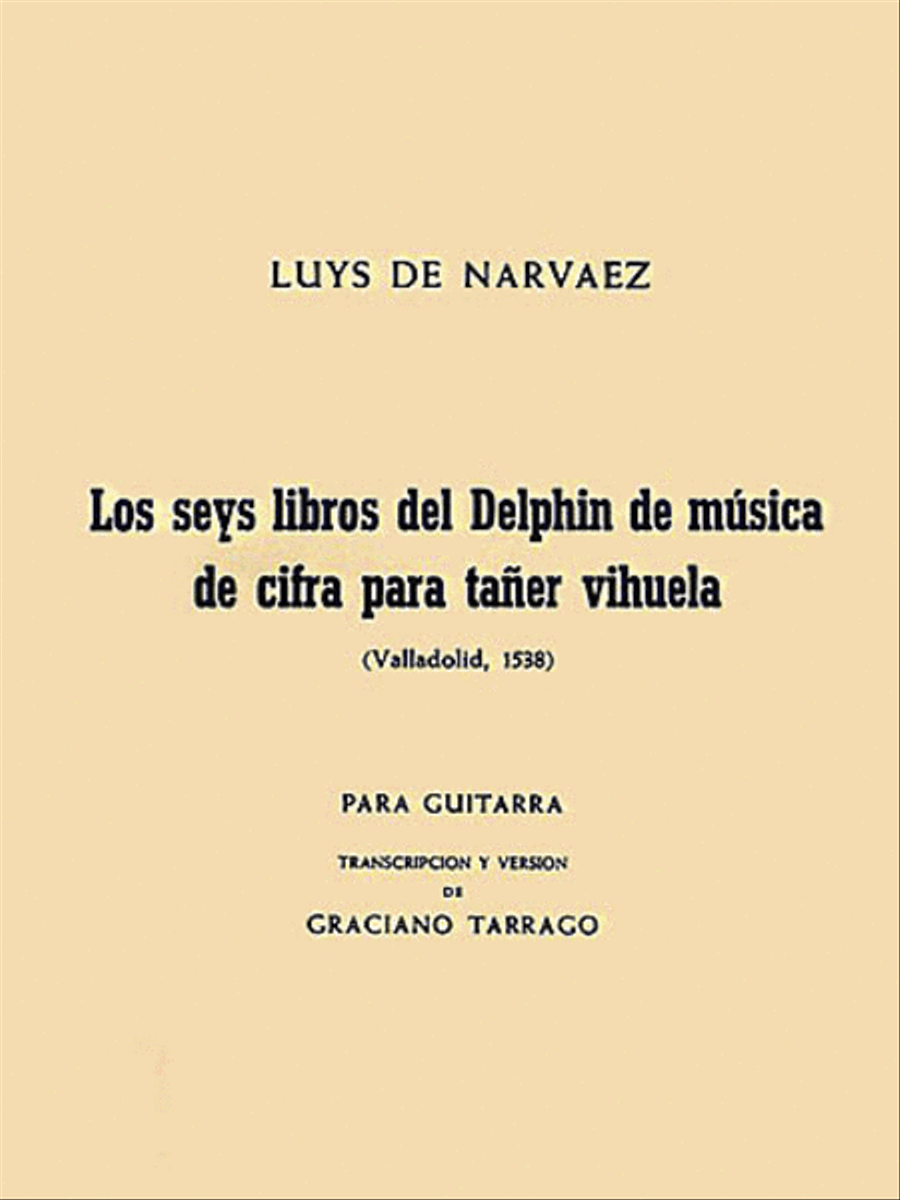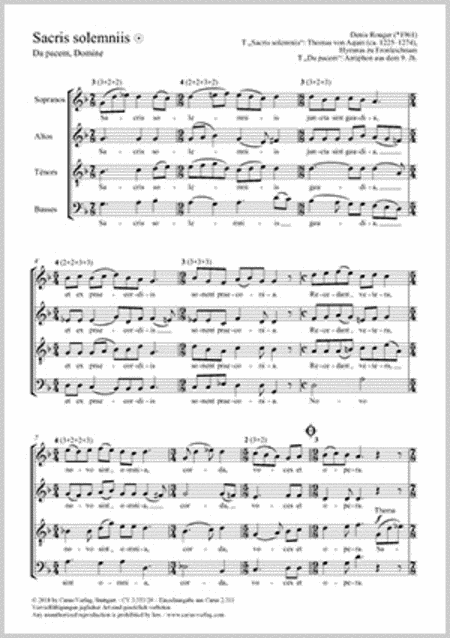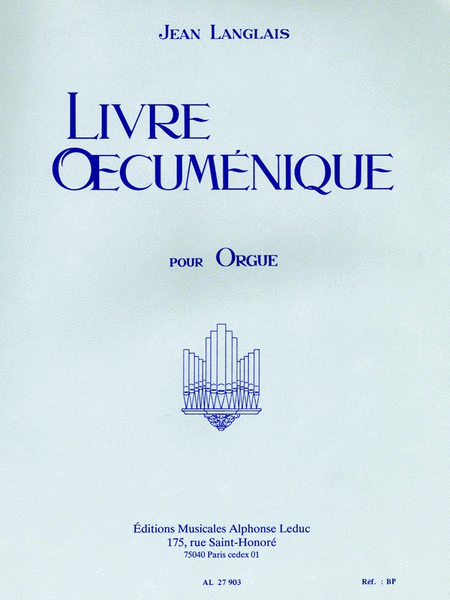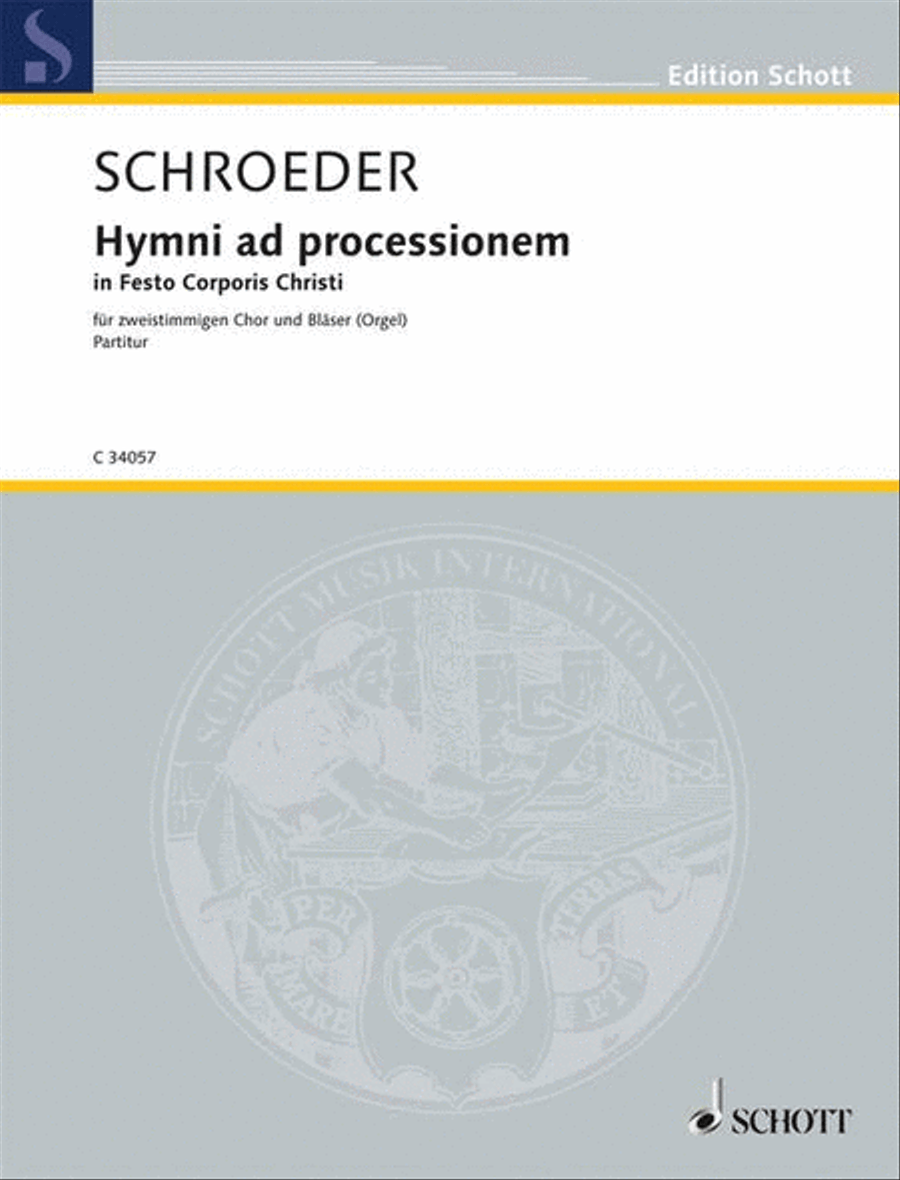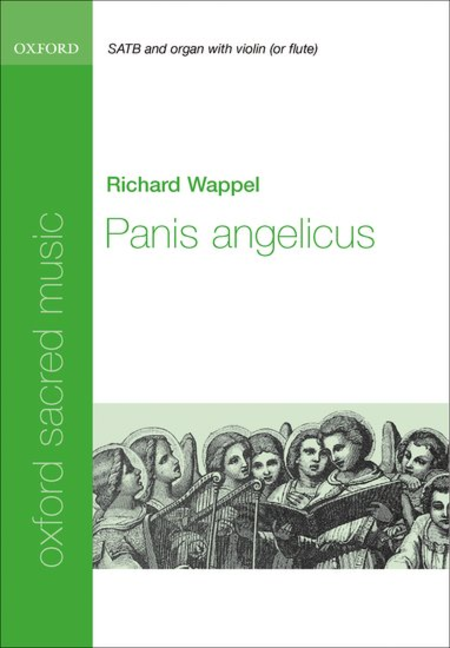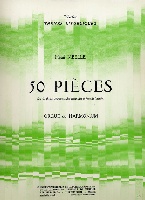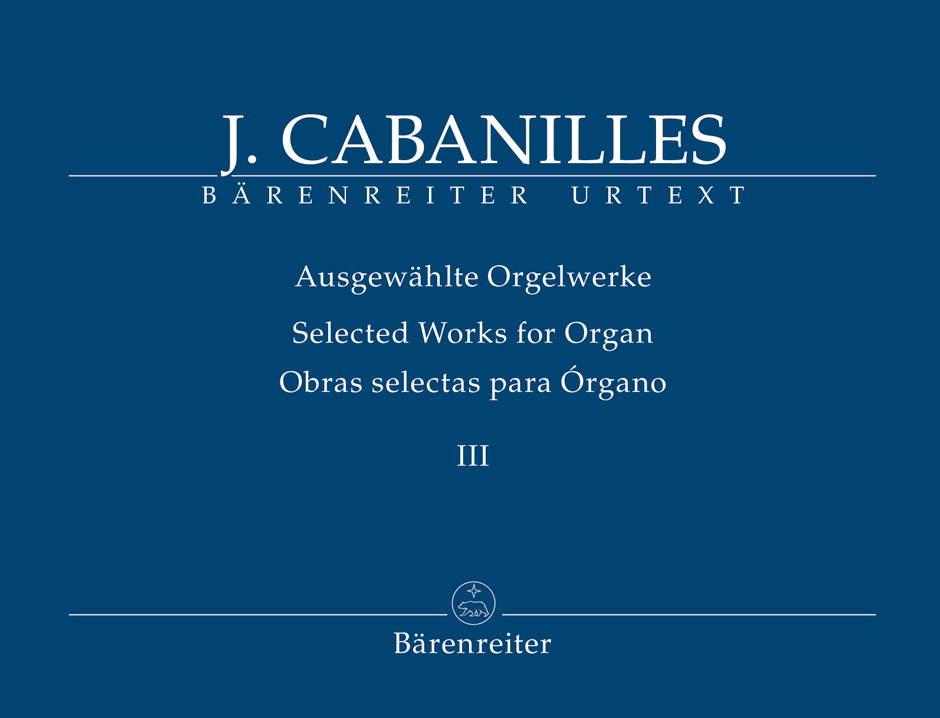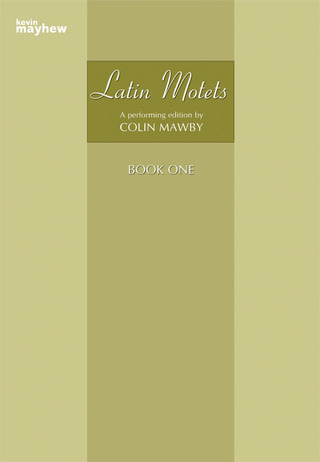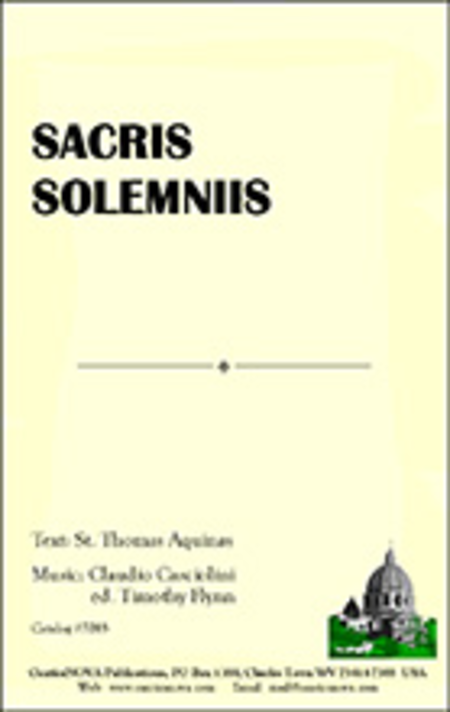 | Composed by Claudio Casciolini. Arranged by Timothy Flynn. A beautiful, yet easy addition to your choir's Eucharistic repertoire, this motet by the former Maestro di cappella at the church of San Lorenzo in Damaso (Rome) features comfortable vocal ranges and primarily homophonic textures with some imitative count. Communion, General. Published by CanticaNOVA Publications (C5.7085). Arr : Choral SATBPublisher : CanticaNOVA Publications$1.75 - See more - Buy online
Lyrics: Saint Thomas Aquinas.
Saint Thomas Aquinas, Dominican doctor of the Church and eminent 13th century theologian, wrote the Office texts for the new feast of Corpus Christi, instituted by Pope Urban IV in 1264. Sacris solemniis was the hymn he composed for Matins of the feast. The last two of its seven verses, beginning "Panis angelicusâ?¦" and "Te trina Deitasâ?¦" are often excerpted for a separate composition. This octavo uses verses 1, 2, 6 and 7 in a setting by Italian composer Claudio Casciolini (1697-1760). Casciolini served as Maestro di cappella at the church of San Lorenzo in Damaso (Rome) and was a member of the Accademia di Santa Cecilia in Rome. His motet Sacris solemniis is homophonic in texture, breaking into some imitative counterpoint on the very last phrase of the verses. The vocal ranges are extremely comfortable: Soprano (E to D), Alto (Bb to G), Tenor (G to Eb), Bass (C to Bb), making this an easy, yet beautiful, addition to the choir's Eucharistic repertoire. The translation of text is: "1. At this our solemn feast let holy joys abound, and from the inmost breast let songs of praise resound; let ancient rites depart,and all be new around, in every act, and voice, and heart. / 2. Remember we that eve, when, the Last Supper spread, Christ, as we all believe, the Lamb, with leavenless bread, among His brethren shared, and thus the Law obeyed, of all unto their sire declared. / 3. Thus Angels' Bread is made the Bread of man today: the Living Bread from heaven with figures dost away: O wondrous gift indeed! the poor and lowly may upon their Lord and Master feed. / 4. Thee, therefore, we implore, O Godhead, One in Three, so may Thou visit us as we now worship Thee; and lead us on Thy way, That we at last may see the light wherein Thou dwellest aye. |
|

 (AMERICAN COMPANY)
(AMERICAN COMPANY) 
